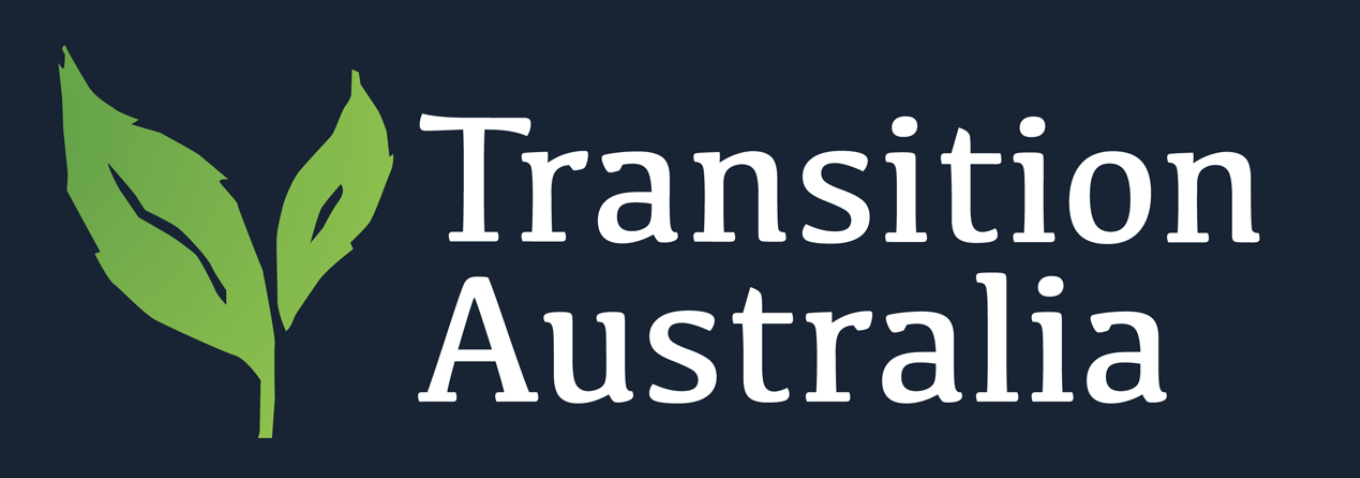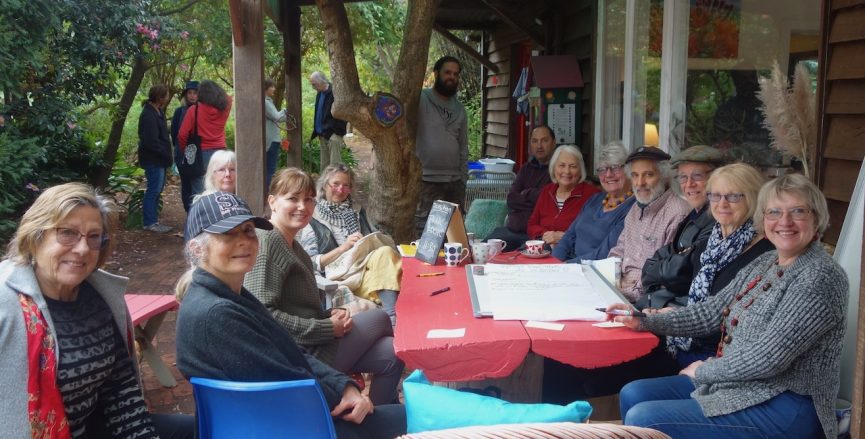Global Climate Change Week (GCCW) aims to encourage academic communities in all disciplines and countries to engage with each other, their communities, and policy makers on climate change action and solutions. The 2020 events were all online, curated by University of Tasmania. The Transition movement in Australia presented a session on Friday 23 October entitled Transition Australia: local solutions to global problems with presentations by Paul Shelton, Convenor of Transition Australia and transition leaders from Transition Margaret River, Transition Bondi, Transition South Barwon and Transition Tamar. Here is the presentation by Karen Majer on behalf of Transition Margaret River.
Hi from the beautiful south west in spring
First of all I’d like to pay respect to the traditional owners of the land here, the Wadandi Pibulmun people, and their elders past, present and emerging. We recognise how much we have to learn from them.
ABOUT US
You probably associate the Margaret River region with wine and surf. We are a popular tourism region based on scenic forests and coastline, caves, food and wine. Our community live in Margaret River, Augusta and a number of small townships, and on rural properties. There is substantial farming activity, primarily dairy, beef and viticulture, and value-adding. We have a strong arts community.
Our natural environment is recognised as having exceptional biodiversity.
We have a population of just under fifteen thousand that swells during holiday seasons.
DIVERSITY = RANGE OF CLIMATE CHALLENGES
The diversity that sustains our community also means a wide range of economic, social, cultural and environmental climate change challenges across marine and coastal areas, farming, viticulture, commerce, industry, urban centres, water supplies, bushfires, health and biodiversity.
TRANSITION MARGARET RIVER
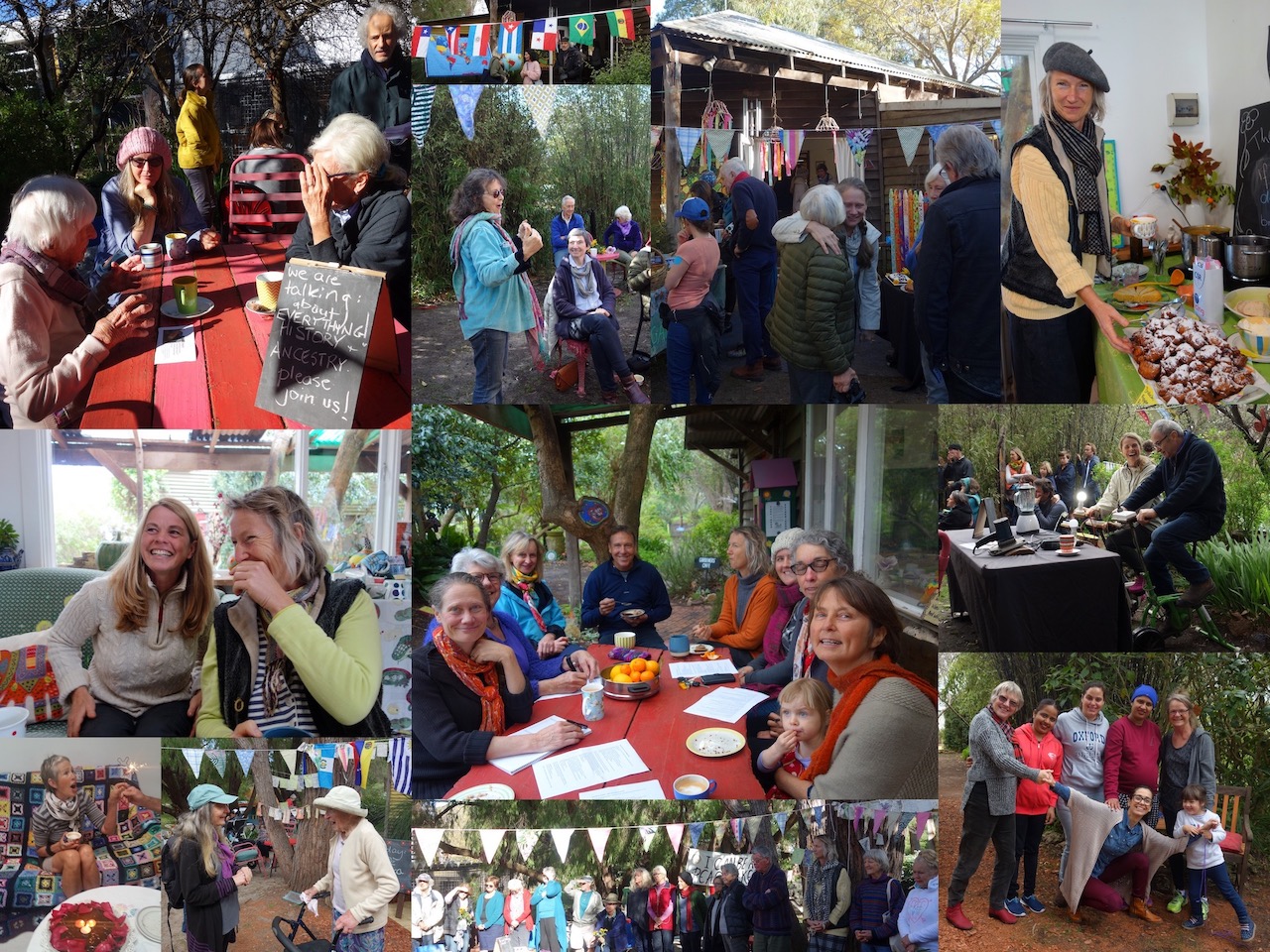
A snapshot of Transition Margaret River, collation of photos
I’m going to tell you a little about how our Transition group acts within a community that is active on a number of fronts especially permaculture, regenerative agriculture, renewable energy and at the local government level.
Transition Margaret River formed in 2012. Now we have about 20 people in our Hub, about 40 active volunteers – a moving target – and some 800 people on the monthly newsletter mailing list.
At our core, we BUILD COMMUNITY among our own network, share produce, support each other and provide a discussion space.
To tackle some of the pressing issues, our approach has been to adopt an annual theme to focus our efforts and to form partnerships around these themes to mount events and projects, such as seminars and an annual Love where You Live sustainability pavilion at the Ag Show.
Our themes have included One Planet Living, waste, renewable energy, and water.
IT’S ALL ABOUT CONNECTIONS AND PARTNERSHIPS
Right from the start we recognised the importance of forming a partnership with the AMR Shire which has been instrumental in almost everything we have achieved.
We work closely with the Undalup Association that represents our local Wadandi people, and with a wide range of community groups who have similar or overlapping goals.
Where I think we punch above our weight is being
AN INCUBATOR FOR IDEAS AND A CATALYST FOR ACTION
Two examples:
1. Renewable energy
In 2014 Transition partnered with the Shire to hold a workshop to facilitate community discussion of what actions can be taken to encourage uptake of renewable energy by the Shire community. One of the most popular suggestions was a wind farm. Fast forward and the group formed to progress the concept is now Augusta Margaret River Clean Community Energy Inc. – a not-for-
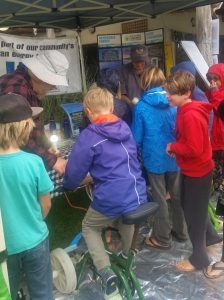
Transition Margaret River activity: pedal power – teaching kids about renewable energy
profit community action group dedicated to reducing overall carbon emissions in Augusta Margaret River. They now have worked to prove a bankable case for an 10 MW windfarm, have pioneered a filter technology for dairy farmers to convert effluent into a soil improving fertiliser, irrigation water and biogas, negotiated a potential community retail energy partnership based on increasing renewable energy and set up a Revolving Fund to assist the community with emission reducing projects.
2. Environmental Stewardship
In 2019, Transition partnered with the Giant Light Steps Environmental Stewardship Alliance to host a community workshop to share and update regional projects to encourage involvement and collaboration. Giant Light Steps is itself an alliance of the conservation organisations Nature Conservation and the SW Catchment Council with tourism, the wine industry, commerce and industry, local government and Transition representing the community. Individual Alliance members are now completing sustainability plans to lighten their sectors’ steps on the landscape and identify opportunities for collaboration.
OUR FOCUS IN 2020 IS LOCALISM AND COMMUNITY RESILIENCE
1. Our project this year is part of a community wide LOCAL-IS-More campaign involving the Margaret River Chamber of Commerce and Industry, Shire, other business associations and Transition. That project is one of ten that received top community votes at the Margaret River Climate Mitigation Summit in 2019.
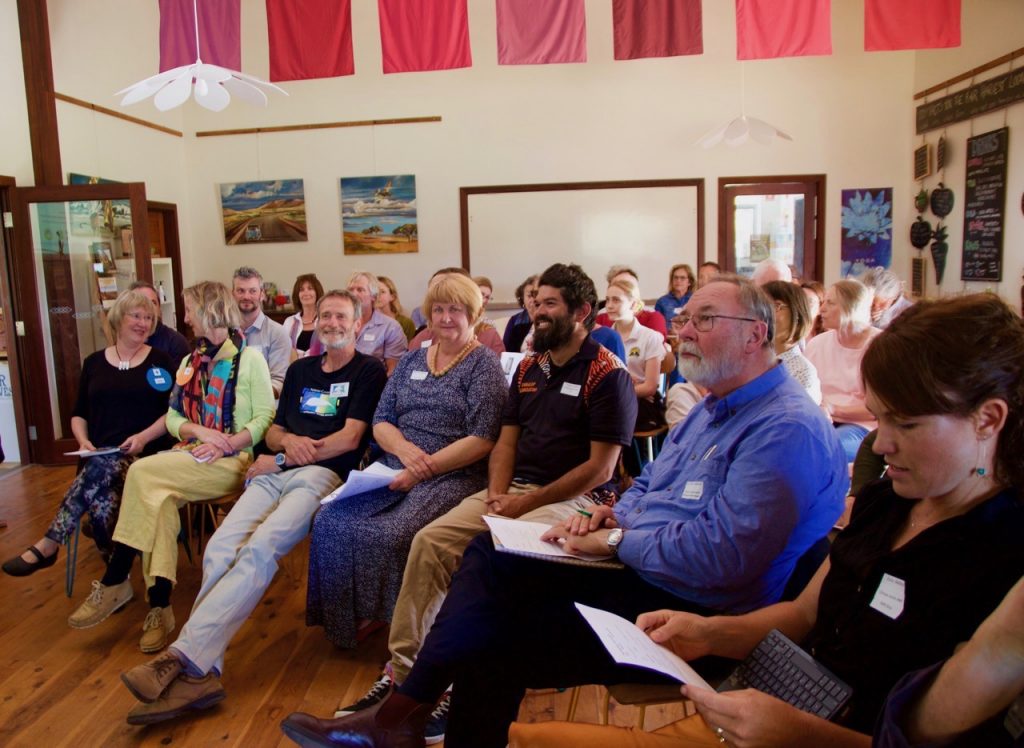
Transition Margaret River Giant Light Steps Workshop 2019
2. The COVID pandemic has highlighted the crucial role of community groups in maintaining personal and community resilience. While confined to ZOOM meetings, we talked about the future and what support groups will need. In May, we helped to pull together a widely representative COVID-safe workshop to develop practical initiatives for COVID-19 recovery and transition to resilience for our community. The group formed a new alliance, which is now the Augusta Margaret River Community Alliance Incorporated. The Alliance made a submission to the Shire to provide input on recovery policies and funding. We hope that it will help all the small groups who struggle with insurance, admin, equipment, auspicing etc to be more effective in their own areas, to communicate and where needed, to have a common voice.
MOVING FORWARD
Celebrating Country
Our focus in 2021 is Celebrating Country in partnership with the Undalup Association, our Wadandi partners. We’re exploring inner transition, creativity, fostering a sense of place, and supporting health and mental health through connection to nature.
WRAPPING UP
I’d like to say that while being highly informed about the climate and ecological issues we face is daunting, being part of a community of like-minded people who are actively trying to create a better future is incredibly empowering. I think that’s what Transition is all about.
“Transition is like compost – all sorts of seeds grow out of it.” Paul Barlow, Transition Margaret River hub member
TRANSITION MARGARET RIVER links
Facebook: www.facebook.com/TransitionMargaretRiver
Web: https://transitionaustralia.net/group/transition-margaret-river/
Blogs: https://transitiontmr.wordpress.com/
LOCAL-IS-More
Karen Majer October 2020
